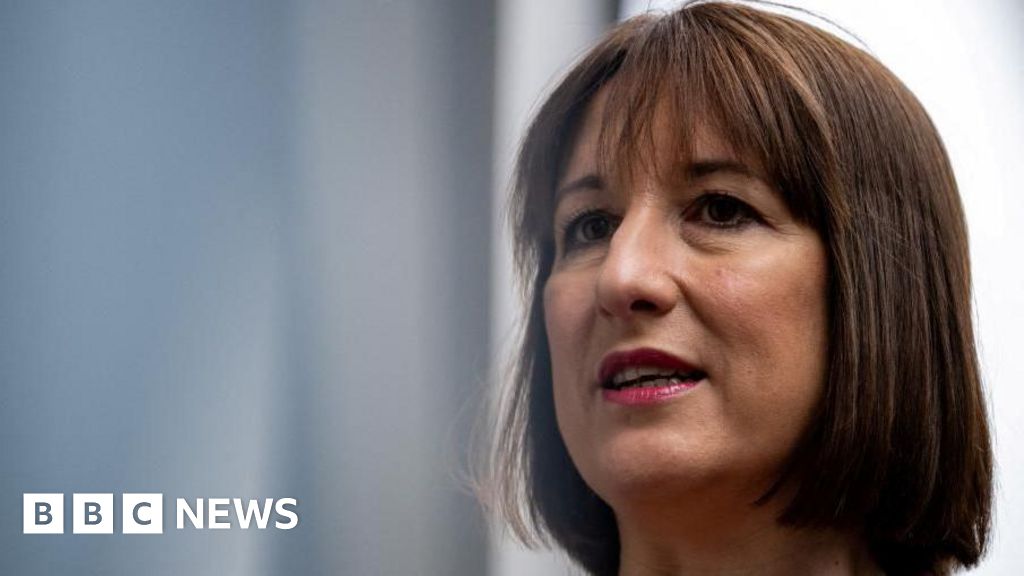Will Rachel Reeves' difficult week cause her lasting damage? - 5 minutes read

Will Rachel Reeves' difficult week cause her lasting damage?
Politics is often reduced to a story of who's up and who's down.
I am, personally, sceptical of the idea of politics being a horse race - I've read too many confident predictions about the state of it that proved to be a nonsense.
But politicians specialise in storytelling - and Westminster would be much duller without it.
So with those caveats, let's consider the question that prompted this piece: just how bad has this week been for Chancellor Rachel Reeves?
There are clearly some people very angry about the chancellor's Budget. It increased taxes by £40 billion and the Treasury intends to raise a comparatively miniscule amount of that by changing the inheritance tax rules for farms.
But the farming protest that rumbled into Westminster on Tuesday was a stark demonstration about the fury felt in rural communities.
There was anger about the government's modelling, anger about the impact on family farming, and anger about a Labour government they don't feel understands rural life.
They want Reeves to think again but so far there's no sign the Treasury intends to budge.
No chancellor wants to unpick a Budget, as George Osborne had to do in 2012 when he U-turned on the "pasty tax".
But slapping VAT on pies and pasties caused a nationwide uproar that looked like an assault on working Britain's lunch.
With this Budget, Reeves has decided to weather the flak from farmers, arguing that the policy is needed to raise cash for public services and clamp down on city speculators snapping up agricultural land as a tax free investment.
And at the moment, she is digging in on that.
The right decision? That depends on who you ask. But a U-turn accepts an initial mistake, and no new chancellor wants that on their CV.
That brings us to another strand of Reeves's difficult week.
At Prime Ministers Questions on Wednesday, with Angela Rayner deputising for Sir Keir Starmer, the Conservatives leapt on claims that Reeves embellished some of her earlier career achievements.
Reeves has previously said she worked as an economist at Halifax Bank of Scotland (HBOS) before entering politics. However, her profile on the networking site LinkedIn has been changed to say the role at HBOS was in retail banking.
Rayner swatted the questions away, saying to the Tory MP Alex Burghart: "Our chancellor in the last four months has shown more competence than the last four chancellors he had."
But the chancellor's opponents in parliament and the press think there's a potentially damaging thread to pull here.
There's also this week's economic data which has not made cheery reading in the Treasury.
Inflation increased a lot in October, jumping from 1.7% to 2.3%. That's higher than the Bank of England's target of 2% but most economists seem to think the UK is still on a disinflationary path.
Perhaps more troubling was the publication on Thursday of October's borrowing figures, which showed the gap between the government's spending and tax take was much higher than expected and underscored Reeves's challenge of keeping the public finances under control.
The latest growth figures made pretty grim reading too, with the UK economy barely growing between July and September.
Jumpstarting economic growth is the ambition that underpins everything the government is trying to do and Reeves said she was "not satisfied" with the figures.
At the time of the Budget, the Office for Budget Responsibility (OBR) predicted growth would pick up to 2% next year before falling back to around 1.5% from 2027.
Hardly dynamic. But the chancellor is banking that the impact of the Budget, next spring's spending review and forthcoming reforms to skills, planning and more can ignite some economic growth.
However, this week she heard more complaints from business that her Budget could have the opposite effect.
In a letter to Reeves, Tesco, Amazon, Greggs, Next and dozens of other chains jointly said that measures in the Budget, in particular the employer National Insurance rise, would add billions in costs, "increase inflation, slow pay growth, cause shop closures, and reduce jobs".
Expect more of that when the Confederation of British Industry (CBI) gathers for its annual conference on Monday.
The prime minister has stood by the plans, and last weekend insisted the Budget had made the right calls and would stabilise the economy and public services.
What's next?
So, has the chancellor had a rotten week? Well, it's not been great.
But this government is less than five months old and has a whopping majority.
Labour’s lead over the Conservatives among the public on key economic issues has "all but faded away" in that time, according to the latest survey by pollsters Savanta.
But barring some unforeseen calamity Reeves has many years - and many worse weeks - in the Treasury ahead of her.
She and the cabinet have spent this early period in power arguing the inheritance they received from the previous Conservative government was gruesome, that the remedy requires hard and unpopular choices.
That being said, blaming the last lot for the problems is a strategy with a limited lifespan.
Before long, voters will be able to judge for themselves how well the new government played its hand.
Source: BBC News
Powered by NewsAPI.org